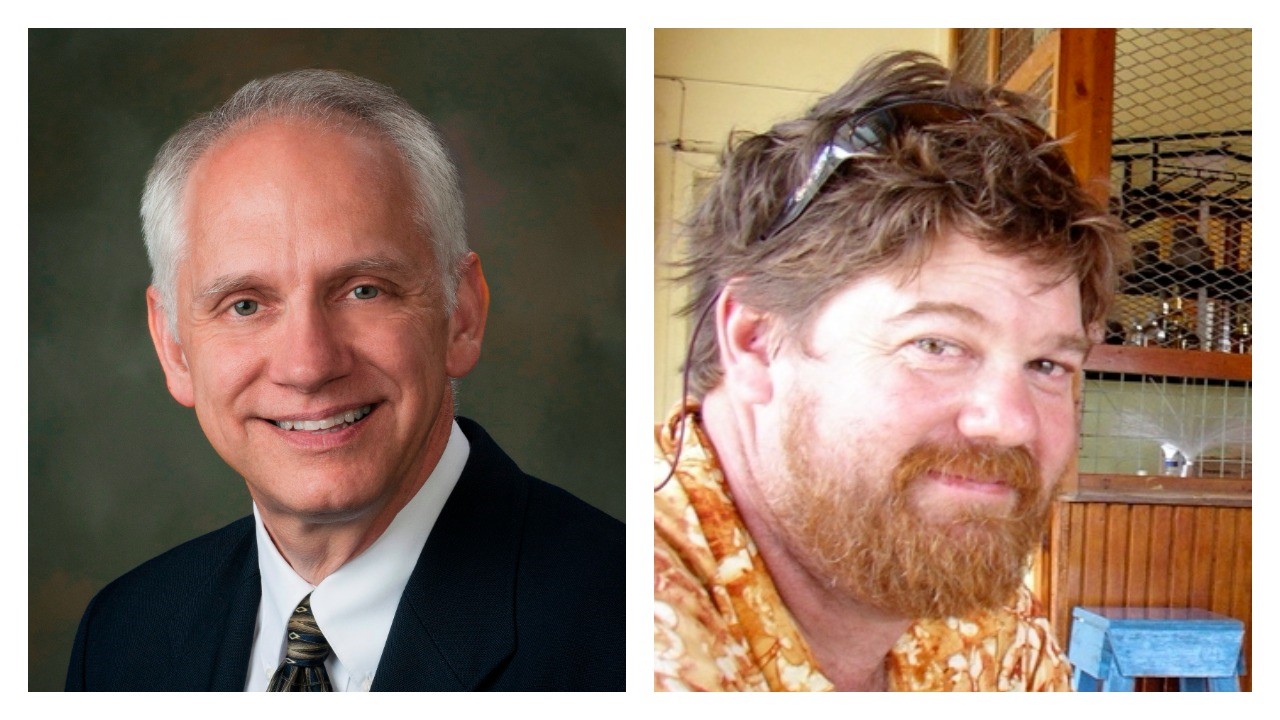
Nebraska faculty selected by São Paulo Research Foundation for collaborative project funding
Two University of Nebraska-Lincoln faculty members, Steven Thomas and Chris Calkins, have been selected for funding by the São Paulo Research Foundation (FAPESP) in Brazil through the SPRINT initiative - São Paulo Researchers in International Collaboration. The program aims to promote the engagement of U.S. researchers with higher education institutions in the State of São Paulo, Brazil. Participants will further develop ongoing research projects and work cooperatively to establish joint research projects for the medium and long term.
Steven Thomas, associate professor in the School of Natural Resources, will explore the influence of land use practices and canopy cover restoration on nutrient spiraling in tropical and temperate stream ecosystems, alongside collaborator Davi Gasparini Fernandes Cunha of the University of São Paulo. Fertilizer use differs considerably between the states of Nebraska and São Paulo. In Nebraska, fertilizer use has been established for decades and nutrient enrichment in streams draining these agricultural landscapes is well documented. In São Paulo, fertilizer use is increasing as agronomic systems modernize but it remains uncertain whether nutrient impacts in these streams parallel those observed in their temperate counterparts. The study will compare and contrast nutrient retention in Brazilian and Nebraskan streams using state-of-the-art experimental and numerical approaches. The collaboration between Dr. Thomas and Dr. Cunha embodies the fundamental spirit of the SPRINT competition by partnering researchers across career stage, discipline, and geography but who share a common passion to understand our streams and our world.
Chris Calkins, professor in the Department of Animal Science, will address the beef aging process and technological advances to implement systems and evaluate meat quality, collaborating with Sérgio Bertelli Pflanzer Júnior of the State University of Campinas (UNICAMP). Of interest to the two beef-producing powerhouses (Nebraska and Brazil) is the growing popularity of dry-aged beef, both domestically and internationally. Due to tenderness and enhanced flavor, dry-aged beef is sold at a premium compared with traditional, wet-aged beef, throughout the world. Traditional wet aging involves storage of beef primal cuts in vacuum bags, which extends shelf life and reduces moisture loss. Dry aging is a process whereby beef carcasses, primals, and/or subprimals are stored unpackaged under controlled temperatures, humidity and/or air flow for a certain period of time to allow the natural enzymatic and biochemical processes that result in improved tenderness and the development of the unique and distinct flavor. Despite the added value, the dry aging process is inconsistent and not well defined, thus the purpose of the collaborative project: defining ideal conditions for dry aging.
The call for proposals invited research in many fields of knowledge, emphasizing agricultural sciences. Nebraska joins the following institutions in being selected for funded proposals: University of Münster (Germany); Fonds de la Recherche Scientifique (FNRS, Beligum); University of Victoria (Canada); Leiden University (the Netherlands); Durham University (United Kingdom); Purdue University, Texas A&M University and the University of California San Diego.
The university’s Institute of Agriculture and Natural Resources (IANR) has prioritized faculty collaborations with institutions in São Paulo state over the last several years, including the signing of an agreement with FAPESP in 2016 to advance these collaborations to the next level and the hosting of the Brazil-USA Research Symposium “FAPESP Week” in September 2017. This relationship, which has been supported by IANR’s Office of Global Engagement and the Agricultural Research Division, has given researchers from both countries the opportunity to engage in ongoing projects and apply for joint funding.
The 2018 call for proposals has just been announced and specific information can be found here. For questions about these awards, the upcoming call or other opportunities to engage in Brazil, please contact Liana Calegare at lcalegare2@unl.edu.